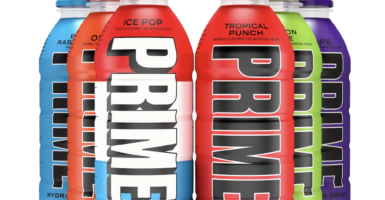The Future Of Grocery Stores Can Be Found In A Tiny Minnesota Town?
A couple in Minnesota is spearheading a new self-serve grocery model meant to benefit those in small towns.
This article is more than 2 years old

One couple in a small town in Minnesota has tapped into the grocery industry in an exceedingly innovative way. They are breathing life back into a part of the industry that has suffered at the hands of big box stores. And as such, they are serving their community, and they are doing so with a small self-serve grocery store called Main Street Market.
Alex and Caileen Ostenson reside in Evansville, Minnesota. It’s a community of about 600 strong. The couple moved to the tiny town to get closer to family after residing in Minneapolis-St.Paul for some time. Coming from a big city filled with conveniences at their fingertips, when they settled in they quickly noticed something was missing, the couple detailed to NPR. There was no grocery store at all. In fact, the closest one was a significant distance away – 20 miles. Thus, the couple felt motivated to find a solution. After doing extensive research and with the help of monetary donations from the local community, the Ostenson’s came up with a self-serve grocery model and opened Main Street Market.
Main Street Market is a grocery store with a unique business model. It is entirely self-serve, meaning that customers shop and check out without the assistance of a cashier and it all works via an app they download on their phone. The app is also how customers can enter the store when it’s outside normal operating hours. The store is open Tuesdays, Wednesdays, and Thursdays. However, customers who pay a subscription for 3 months, 6 months, or a year can enter the store even when it is closed to pick up whatever essentials they may need. This comes as a godsend for people in a small town who prior to the opening of Main Street Market didn’t have the simple convenience of just running to the grocery store to grab a few things whenever they needed to.
Main Street Market’s unique model could truly pave the future of what grocery stores could look like in small towns in rural parts of the United States where there isn’t typically a grocery store for miles. Speaking out about how he and his wife arrived at the idea, Alex Ostenson told NPR that “Being able to find a cost-effective solution that works, with grocery being fairly low margin, that was kind of key.” Ostenson continued “Once we found that it kind of sealed the deal that we were going to give it a try.”
Essentially, Ostenson is saying that their model works because it doesn’t come with all of the typical overhead that a grocery store typically has. Because it is self-serve, they don’t need to pay employees to check out customers and the like. This also means that they don’t have to adhere to traditional hours, which also helps to keep operating costs down. The self-serve model, for the Ostenson’s and those in Evansville, removed the barriers typically standing in the way of the success of small-town grocery stores.
The Ostsenson’s are already looking ahead to see how they can expand their self-serve grocery model. They are first concentrating on how they can bring it to other small towns in their home state of Minnesota. To assist them on their mission the couple was granted a $30,000 fellowship through the West Central Initiative Foundation. “I’m really hopeful that we will learn something and can see if this is a model that could be replicated in other communities throughout the state,” Kathy Draeger, who is the statewide director for the University of Minnesota Regional Sustainable Development Partnerships, said of the Ostenson’s self-serve grocery model.









